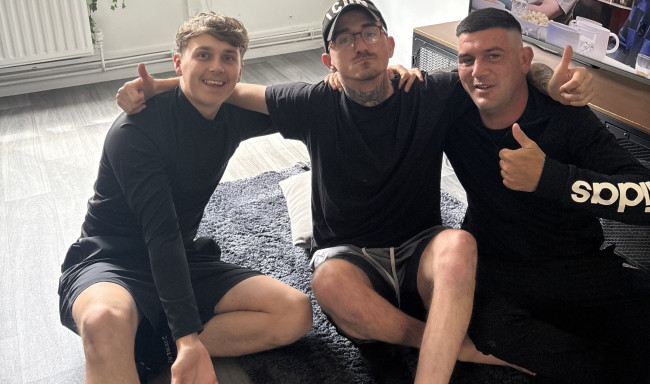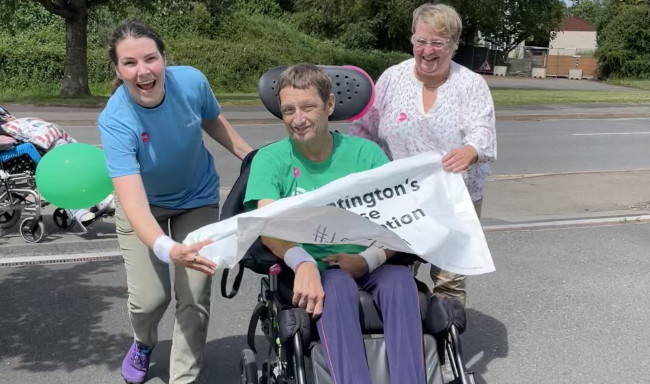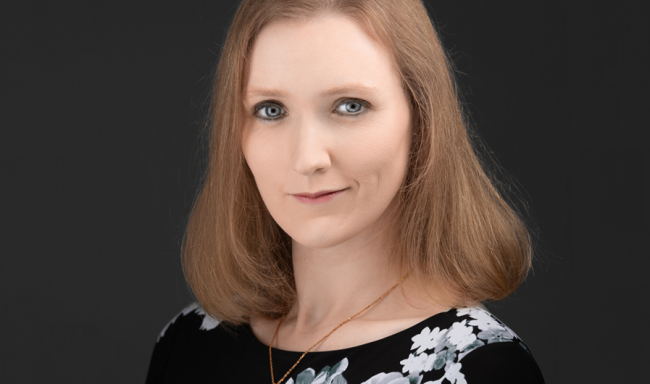Megan Ashmore, 23, first discovered she was at risk of developing Huntington’s when her dad was diagnosed in 2012.
Megan is now a Huntington’s Disease Association ambassador and is passionate about raising awareness of the condition and the support available. She’s also recently decided to have the test to find out if she’s got the faulty gene that causes it.
My dad first started showing symptoms in 2012 although we didn’t realise it was Huntington’s at the time as there was no family history of the disease. He went to see a GP as his hands were quite twitchy and a consultant neurologist who assessed his walking as he had a strange gait. He also had blood tests and an MRI scan, but by that time they were pretty certain they knew what it was. When he received the diagnosis, it was a complete shock as we weren't aware of anyone in their family having Huntington's previously. When I look back, I realise it must have been quite scary for him as he’d never even heard of Huntington’s before. It was also really hard because he’d just been made redundant, so there was a lot going on, but having a diagnosis and subsequently being referred to the specialist team at Nottingham City Hospital definitely helped. We were finally able to get the answers to a lot of the questions we’d been asking about his health, although at that time he was still in the early stages and wasn't that badly affected.
Cognitive decline
Since then, the disease has unfortunately progressed, and he would now be classed as being in the advanced stages. He can't walk and can only stand for a short time, with help. His speech is very limited, so he uses an alphabet board to help ease his frustration. The biggest thing for me, however, is his cognition which has declined massively. He still knows who I am, but he's not really aware of what's going on around him and there are times when he is distressed and unable to tell anyone what’s wrong which is really upsetting. I just try and do everything I can to help him.
It’s had a huge impact on me and my family over the last 12 years as he’s declined so much in what seems like a relatively a short space of time. Unfortunately owing to COVID we missed out on a lot of time when we could actually do stuff with my dad. We were terrified of him contracting coronavirus and because he spent such a long time at home, when it was safe to go out, he was unable to cope with being in public places with lots of people.
In the beginning, I was providing more emotional support, and then as his symptoms worsened, I started helping with his personal care like feeding, getting him dressed and cutting his nails. Stuff you just don't even think about. I've got two half-sisters and a half-brother, who also help care for my dad, but they're all older and have full-time jobs and children of their own so it’s quite difficult for them. I also do all of his admin like managing his finances, organising his care and attending appointments.
Being a young carer
As I had to take on a lot of responsibility at a young age, I wasn't able to move away to go to university. I stayed at home to study because I need to be close to my dad in case anything happens. Owing to my experience I decided to do a degree in health and social care and I’m currently studying for an MSc in social work. I divide my time between studying and helping to care for my dad as he still lives in the family home, just five minutes round the corner from me. Luckily, he also has a care team who visit daily. I even wrote my dissertation about the impact of young carers. Researchers often speak about the negative impact of being a carer on young people, but there are also a lot of positives. Of course, I wonder what life would have been like if this hadn’t happened and there are times when I feel sadness and anger. I used to imagine my dad walking me down the aisle and that's not going to happen now, but I have this whole different depth of love for people and so much gratitude.
When you have a disease like Huntington’s in your family and you know that could be you in 20 or 30 years’ time, you don’t take anything for granted.
Deciding to take the test
Obviously, the genetic aspect of the disease is very scary because the odds of inheriting it are 50:50 - it's literally the flip of a coin. I recently made the decision to get tested because I realised, I am responsible for my own life and what I do with it. I’m a bit of a control freak and I guess knowing what your future holds gives you a sense of control, however futile. If I have the gene, I know I need to prioritise my health and do the things I want to do now, not wait five years. Also, I might want to have a family of my own one day and I don't think I'd be able to have a child, knowing I have the gene and they have a 50% chance of inheriting it. I wouldn't want to put anyone through what I've experienced - it's just horrible and I wouldn’t wish it on my worst enemy. Having said that, it’s a very personal choice and I wouldn’t judge anyone who decided to have children as everyone's situation is different and who knows? One day there might be a treatment or a cure. There are so many clinical trials underway.
Obviously, the genetic aspect of the disease is very scary because the odds of inheriting it are 50:50 - it's literally the flip of a coin.
Raising awareness
As a Huntington’s Disease Association ambassador, I'm so passionate about raising awareness of the disease and supporting campaigns like Odds And Socks Day on 29 February. In September 2023 I ran the Robin Hood Half Marathon on behalf of the association and raised over £2,500. We wore bright pink and green t-shirts which really stood out and encouraged people to start asking questions.
I think people are so afraid to ask questions but it’s really important as there’s very little understanding or knowledge about it and those affected by Huntington’s don’t always get the help they need. That’s one of the reasons why the work of the Huntington’s Disease Association is so important.
Having the disease or having a parent with the condition, whether you’re a child or an adult, can be very isolating and scary. Their Specialist Advisers can help with all sorts of things, whether you're going through testing, need help with life insurance or care planning or just want to find out more about the condition. I’ve also attended their peer support groups and became an ambassador last year. It's so nice to be able to speak to other people who are in a similar situation as me and my family. There's such a supportive community out there and so much hope. People are going through hard times but we're all there for each other at the end of the day.
Thank you to Megan for sharing her story and why she is joining us on Odds and Socks Day.
Want to get involved with Odds and Socks Day?
You can find out more about our campaign and how you can get involved below.



